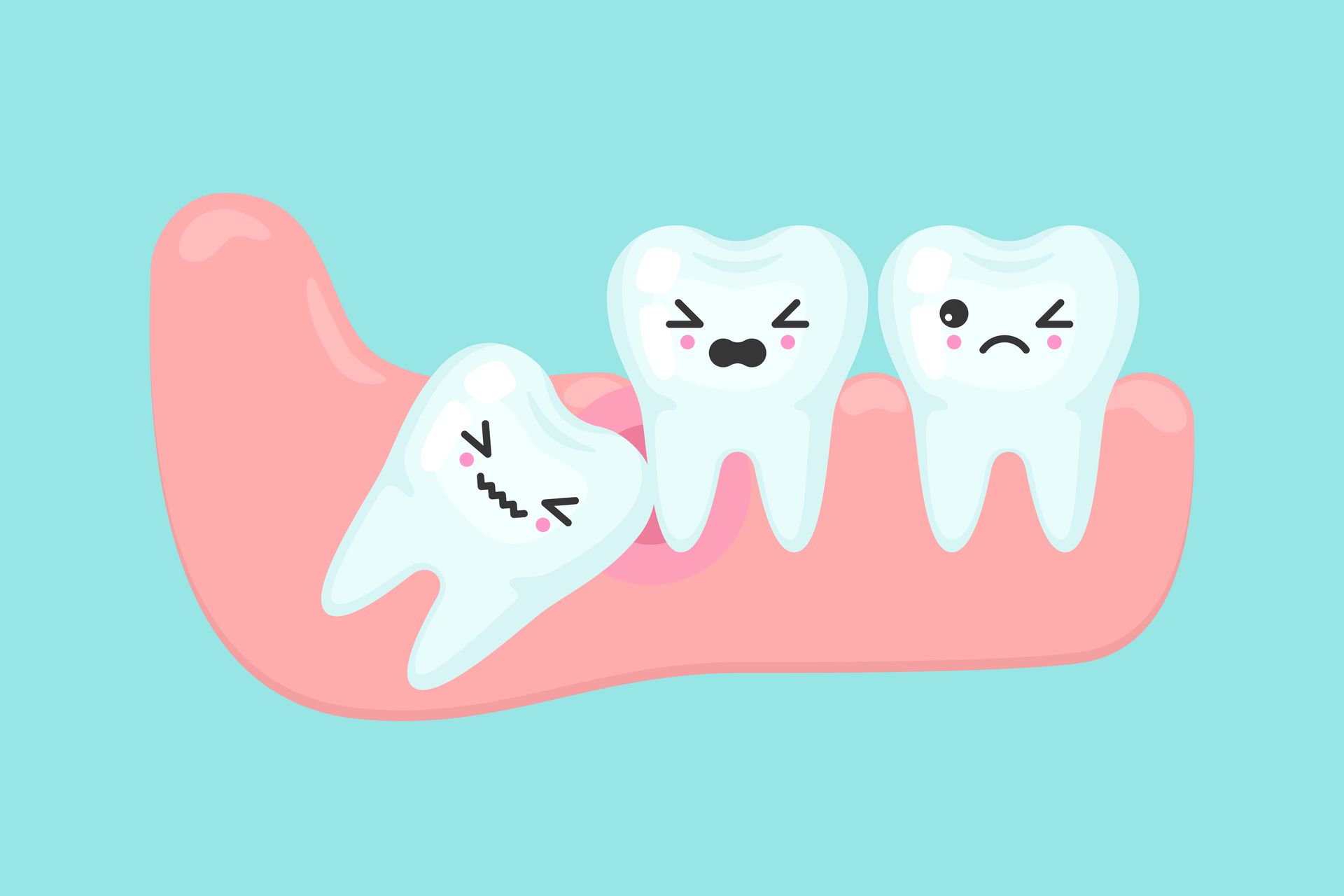What Are Wisdom Teeth and Why Do We Remove Them?
Wisdom teeth, also known as third molars, are the last set of molars to emerge in the back of your mouth. Typically, they appear between the ages of 17 and 25. While some people never experience issues with their wisdom teeth, many do, leading to the need for removal.
What Are Wisdom Teeth?
Wisdom teeth are the final set of molars that most people get. They are called "wisdom" teeth because they usually appear during the late teens or early twenties, a time when a person is considered to be more mature or "wiser." These teeth are located at the very back of the mouth, one on each side, both on the top and bottom jaws.
Why Do We Have Wisdom Teeth?
The exact reason for the existence of wisdom teeth is a topic of debate. Some theories suggest that our ancestors needed these extra teeth to help grind down tough, raw foods. As our diets have evolved and become softer, the need for these additional molars has diminished. However, our jaws have not necessarily shrunk to accommodate this change, leading to common issues with wisdom teeth.
Why Do We Remove Wisdom Teeth?
- Impacted Teeth: One of the most common reasons for wisdom tooth extraction is impaction. Impacted teeth are those that do not have enough room to emerge properly and can cause pain, swelling, and infection. They can also push other teeth out of alignment.
- Infection and Decay: Wisdom teeth can be difficult to clean, making them more susceptible to decay and infection. If left untreated, these issues can spread to other teeth and gums.
- Cysts and Tumors: In rare cases, impacted wisdom teeth can lead to the formation of cysts or tumors, which can damage the jawbone and surrounding teeth.
- Crowding and Misalignment: As wisdom teeth try to emerge, they can push other teeth out of alignment, leading to crowding and misalignment. This can affect your bite and the overall appearance of your smile.
The Wisdom Tooth Extraction Process
Wisdom tooth extraction is a common procedure performed by an oral surgeon. The process typically involves:
- Consultation: During your initial consultation, your oral surgeon will examine your teeth and take X-rays to determine the position and condition of your wisdom teeth.
- Preparation: You will be given instructions on how to prepare for the procedure, including fasting and any necessary medications.
- Procedure: The extraction is usually performed under local anesthesia, though sedation options are available for those who are anxious. The oral surgeon will make an incision in the gum to access the tooth, remove any bone blocking the tooth, and then extract the tooth.
- Recovery: After the procedure, you will be given post-operative instructions to ensure a smooth recovery. This includes managing pain, swelling, and avoiding certain activities for a period of time.
Ready to Address Your Wisdom Teeth?
At Amherst Oral Surgery, we understand the importance of a healthy and comfortable smile. If you are experiencing issues with your wisdom teeth or are concerned about potential problems, don’t hesitate to call us at 716-633-8400 to schedule a consultation. Our team is here to provide you with the care and information you need to make the best decision for your oral health. Let us help you achieve a pain-free and healthy smile.



